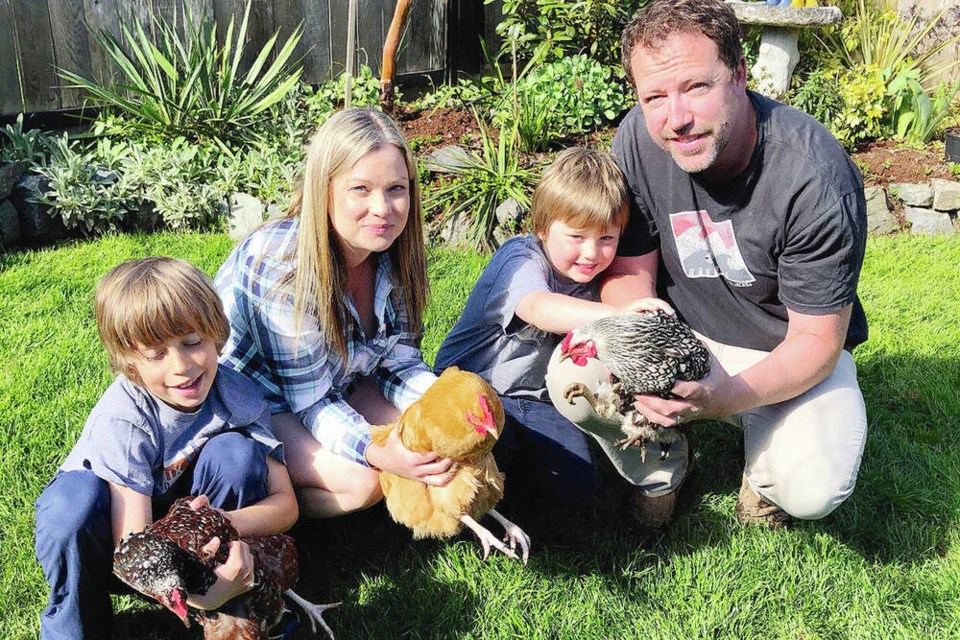Sidney is moving one step closer to allowing backyard hens after years of advocacy from residents on the topic.
Council voted Monday to ask staff to prepare a bylaw change to approve backyard hens, which is expected to come early in the new year.
Backyard chickens were explored in 2013, but the council at the time chose not to authorize them. The issue was also raised during the town’s Official Community Plan process, with many letters received both in favour and opposed starting in 2019.
The municipality is the last in the region to allow backyard hens, Mayor Cliff McNeil-Smith said.
The bylaw amendment to be brought forward by staff will set parameters on the number of hens permitted, the design of enclosures and minimum lot sizes where hens would be allowed, he said.
Staff looked at other municipalities’ approach to backyard hens, including maximum flock size and licensing requirements. View Royal and Colwood allow four hens, Saanich allows five and Esquimalt permits seven.
Cherie MacLure, who has lived in Sidney for 11 years, said she and her three children all did celebratory dances when they heard that council was moving closer to approving backyard hens.
She and her family started lobbying for changes about five years ago, collecting signatures on a petition and speaking up during the OCP process.
MacLure said backyard chickens are great for reducing food waste, because kitchen scraps can go to the hens instead of being put in organics waste. They also give children a chance to learn about responsibility by taking care of the chickens, letting them out in the morning, putting them to bed and collecting eggs.
“It’s important for kids to learn that food isn’t something that sits on a grocery shelf,” she said.
Some, however, have expressed concerns about noise, smell and the potential for chickens to attract rodents.
A staff report said hens make noise primarily when laying an egg in the morning, and the sound can be mitigated by restricting hens to indoor coops outside of daylight hours and requiring setbacks from neighbouring properties.
The report also said an animal control professional recommended using pea gravel around hen enclosures to ward off rats that may try to enter the enclosure, adding the city could require proper care and regular coop cleaning to mitigate smell.
In a speech at Sidney’s committee of the whole meeting last week, MacLure’s 12-year-old, Dawson MacLure, told councillors that all animals can be smelly when not cared for.
“My dog smells worse than any healthy chicken I’ve met. We’re asking to keep healthy birds that are well cared for, and healthy birds do not create any smell,” he said.
Coun. Richard Novek said at the meeting that despite some reservations, he is satisfied Sidney can join the region’s municipalities in allowing backyard chickens as long as the town can enforce its rules.
“I’m prepared to give the benefit of the doubt to our staff, who I think will do a good job in ensuring that this doesn’t get out of hand,” he said.
The staff report said Sidney will have to determine how to manage compliance, and establishing a permit or licence system is recommended.



